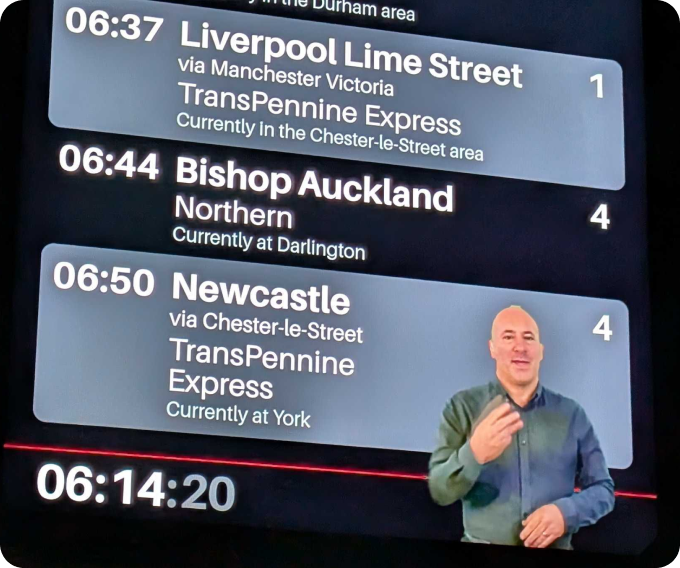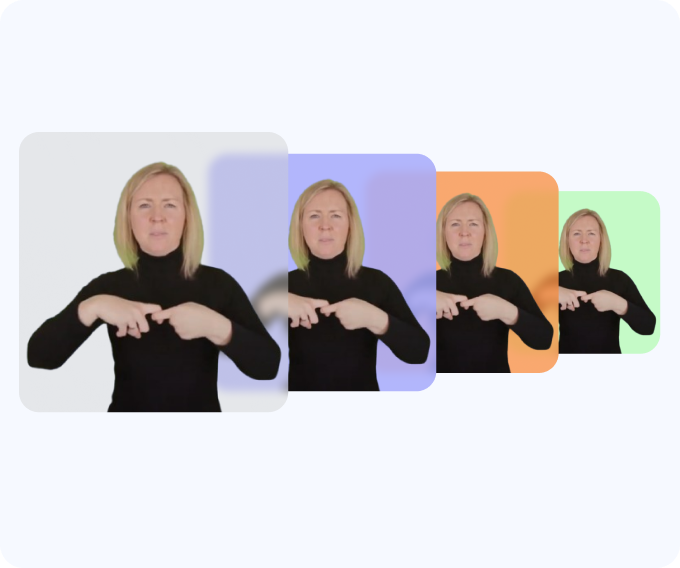The Importance of Cultural and Linguistic Awareness in Sign Language Technology

While society has taken great strides with technologies that will make the world a more accessible place, there’s one thing many fail to consider: cultural and linguistic awareness.
Video and internet technology is a scientific process, but we can’t ignore the cultural contexts of those who use it. As we develop products, we must also understand the importance of cultural and linguistic awareness in sign language technology.
What Is Cultural and Linguistic Awareness?
Cultural and linguistic awareness refers to a general knowledge of cultures outside of your own. Deaf culture, for example, is largely only known and discussed within the Deaf community.
Technology plays a large role in culture today. Because technology is culturally driven, its developers need to be culturally and linguistically aware when developing products for use by people from cultures outside of their own.
The language difference between Deaf and hearing communities is the most prevalent barrier to cross-cultural awareness. Hearing people – especially those developing technology for Deaf people – should take steps to learn about Deaf culture and language. Otherwise, how can technology be accessible to and benefit the Deaf community?
What Factors Are There to Consider in Linguistic and Cultural Awareness?
When developing linguistically and culturally aware technology, there are several factors to consider. We’ve broken them down into three main points: education, technology, and legal recognition.
Being aware of educational, technological, and legal opportunities within a culture is one way to better understand the people in it.
Education of Deaf Culture
Cultural and linguistic awareness of the Deaf community can start in the classroom.
Numerous types of classes and tutorials are available to those who want to promote Deaf culture awareness:
- British Sign Language (BSL) courses begin with the basics and help you work your way up to fluency in BSL.
- BSL tutorials offer individualised tutoring services to learn the language faster
- Deaf awareness courses discuss Deaf issues and the community without specifically teaching sign language
- BSL taster sessions offer basic information to those who are curious about the Deaf community

Legal Recognition of Sign Languages
Developing technology for the Deaf community as a hearing person means understanding how that community interacts with the world. On a larger scale, you need to know how the laws in your country have impacted their lives:
- The Accessible Canada Act works to make Canada generally accessible for everyone, including Deaf and disabled populations.
- The British Sign Language Act (BSL Act 2022) advocated for legal recognition of BSL as a language in England, Wales, and Scotland.
- The United States does not have legal recognition of sign languages but does have the Americans with Disabilities Act, which protects citizens with disabilities from discrimination.
- The Swiss parliament is in the process of legally recognising three different sign languages.

Credit: Limping Chicken
Existing Sign Language Translation Technology
Being aware of the existing technology available to Deaf communities and its shortcomings is essential to develop more accessible technology.
For example, many Deaf people have expressed that captions on videos are not accessible to them and often create a feeling of cognitive dissonance.
Signapse offers video sign language translations to make websites more accessible to Deaf users.
How Does Signapse Put These Values into Practice?
Talking about the importance of cultural and linguistic awareness in sign language technology is essential, but it’s even more important to take action.
Signapse does this in three ways.
Representation
Synapse prioritises hiring Deaf team members and translators. Who can understand Deaf culture better than those who are a part of it?

Accuracy
Signapse’s AI technology achieves high levels of accuracy to put our linguistic awareness into practice with each translation. Our team is dedicated to syntax and grammatical accuracy in all translations.
Partnerships
Collaborating is a great way to practise cultural and linguistic awareness. Signapse is proud of our partnership with SH BSL, founded by Stephen Hurley. This partnership brings our technology to Deaf users.
Take Action Toward Awareness Today
Now that you know the importance of cultural and linguistic awareness in sign language technology, use Signapse’s video translation product to make your content more accessible today.
As our customer, you can rest assured that Signapse is putting in the work to be culturally and linguistically aware of the Deaf community. Schedule your demo today.
Related Articles
The Ethics of AI in Accessibility: Where Do We Draw the Line?
What is our planned approach to the grammar of sign language?
The Signapse AI Roadmap: Our Journey to Human-Level Sign Language Translation



